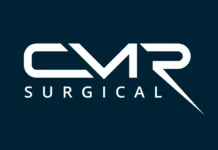Finding the right heart surgeon is one of the most crucial decisions to make when faced with heart disease or the need for a complex heart procedure. The heart is one of the body’s most vital organs, and any surgery carries inherent risks. Therefore, choosing a skilled and experienced heart surgeon is critical to ensuring the best possible outcome for the procedure. Various factors need to be considered before making this critical decision.
Read on to learn the six key factors to consider when finding the best heart surgeon.
1. Board Certification and Specialization
The first step in identifying a qualified heart surgeon is checking for board certification. This ensures that the surgeon has undergone the rigorous training and assessments required to meet the standards of the American Board of Thoracic Surgery or a similar governing body. Surgeons who specialize in heart surgeries, also known as cardiothoracic or cardiovascular surgeons, possess advanced knowledge and skills in performing intricate procedures like coronary artery bypass grafting, heart valve repair, and heart transplants.
Patients should also inquire about the specific type of heart surgery that a surgeon focuses on. Different surgeons might specialize in various procedures, from minimally invasive heart surgeries to complex open-heart operations. By choosing a heart surgeon whose practice emphasizes the specific procedure needed, patients can increase their chances of success and reduce the risk of complications.
2. Surgeon-Patient Communication and Trust
Clear communication between the surgeon and the patient is essential for establishing trust and ensuring that all concerns are addressed. The best heart surgeons take the time to explain the procedure in detail, answer any questions, and discuss potential risks and benefits. They’ll also outline the recovery process and provide a realistic expectation of the surgery’s outcomes.
Patients should feel comfortable with their surgeon and have confidence in their abilities. It’s important to evaluate whether the surgeon listens attentively to concerns, provides comprehensive answers, and makes an effort to alleviate anxieties. A surgeon who is patient, transparent, and empathetic can greatly improve the overall experience, from the initial consultation to post-surgical follow-ups.
Lastly, when looking for a heart surgeon, it’s crucial to review their credentials and experience thoroughly. Those seeking reliable care should explore resources about a heart surgeon to find professionals who are trusted within the community and specialize in the necessary procedure.
3. Experience and Track Record

One of the most significant factors to consider when selecting a heart surgeon is their experience level. A surgeon who has performed a high number of surgeries like the one being considered will have refined their skills and learned to handle various potential complications. Hence, when researching, it’s important to ask the surgeon about their experience, including the number of surgeries they’ve conducted and their success rates.
Furthermore, evaluating the surgeon’s track record goes beyond just looking at numbers. Patients should also ask about mortality rates and post-operative complications related to their surgeries. Although every surgery has inherent risks, a good heart surgeon should have a relatively low rate of complications.
4. Hospital Affiliation and Surgical Team
A heart surgeon’s ability to provide top-quality care is closely linked to the hospital where they practice and the team that supports them. The best heart surgeons often work in hospitals known for their expertise in cardiovascular care. Therefore, it’s essential to choose a hospital that’s well-equipped with modern technology, dedicated cardiovascular care units, and specialized post-operative care services. Patients should also research hospital ratings, focusing on those with high marks for cardiovascular surgery.
The surgical team is another key factor. Heart surgery is a collaborative effort that involves anesthesiologists, nurses, perfusionists, and other specialists. Ensuring that the surgeon works with an experienced and highly skilled team is crucial for a smooth operation and recovery process.
5. Recommendations and Referrals
Seeking referrals from trusted sources can be another valuable step in finding the best heart surgeon. Primary care physicians, cardiologists, and other healthcare providers often work with skilled surgeons and can provide recommendations based on their professional experience. Cardiologists, in particular, refer their patients to heart surgeons and have insights into their specialties and success rates.
In addition to professional referrals, personal recommendations from family members, friends, or acquaintances who have undergone heart surgery can also provide meaningful guidance. However, while recommendations are helpful, they shouldn’t be the sole factor in decision-making. Always balance them with a thorough review of the surgeon’s credentials, experience, and outcomes.
6. Patient Reviews and Testimonials
Online patient reviews and testimonials offer valuable firsthand insights into the experiences of others who have undergone heart surgery. Many patients share detailed accounts of their interactions with surgeons, including pre-operative consultations, surgery, and post-operative care. While patient reviews should be taken with a grain of caution—since experiences can vary widely based on individual circumstances—they can help identify surgeons with a consistent record of patient satisfaction.
Patients should also focus on reviews that mention the surgeon’s communication skills, professionalism, and outcomes. Consistently positive feedback can help reassure prospective patients that they’re making the right choice, while recurring negative reviews may be a red flag.
Conclusion
Finding the best heart surgeon requires careful consideration of multiple factors, from board certification and experience to hospital affiliation and the use of advanced techniques. By focusing on these key areas, patients can ensure they select a heart surgeon who is not only highly skilled but also committed to providing personalized, comprehensive care.


















